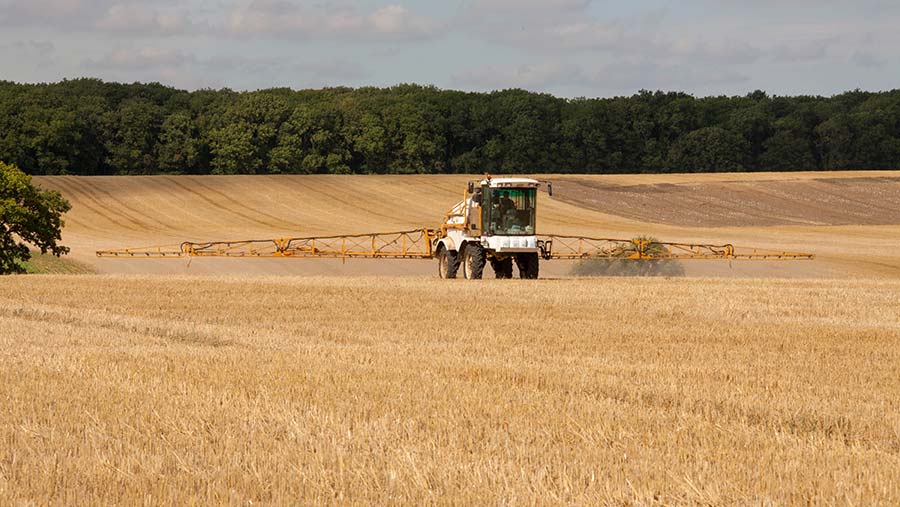Battle lines drawn as EU votes on glyphosate
 © Tim Scrivener
© Tim Scrivener Battle lines are being drawn ahead of a crucial vote which could determine the fate of glyphosate use in the EU.
Member states are due to vote in Brussels on Wednesday (25 October) on an EU proposal to relicense glyphosate for a 10-year period at a meeting of the European Commission’s standing committee on plants, animals, food and feed (Paff).
France has stated its opposition to the proposal and Germany is understood to be considering an abstention.
See also: On-farm trials focus on growing without glyphosate
EU health commissioner Vytenis Andriukaitis has stated that the European Commission is seeking a favourable vote of at least 16 countries, representing at least 65% of the EU’s population.
About a dozen countries, including Spain, the UK and Netherlands, are said to be in favour of renewing glyphosate’s licence.
However, if the two largest EU member states, France and Germany, do not vote in favour of a reapproval, the vote could end in a stalemate. Mr Andriukaitis has left the door open to a second vote taking place in November before glyphosate’s licence expires in late December.
EU farmers’ umbrella group Copa-Cogeca, the farming body that represents EU farming unions and co-operatives, called on the EU to reauthorise glyphosate for 15 years, arguing that “strong scientific evidence has confirmed its safety”.
‘No safety concerns’
Failure to do so would put food produced in an environmentally-friendly way at risk, it said.
“EU scientists have agreed there are no safety concerns when it comes to glyphosate,” said Copa president Joachim Rukwied.
“The key scientific bodies involved in this case – Germany, the member state in charge of the assessment, the European Food Safety Authority [Efsa], and the European Chemicals Agency [ECHA] – all clearly stated there are no safety concerns about the use of this herbicide active substance.”
Copa-Cogeca said it “regretted” calls by MEPs on the European Parliament environment committee for a full ban on glyphosate-based herbicides by 15 December 2020.
“Its use is important together with catch crops to prevent soil erosion, reduce greenhouse gas emissions and to use zero tillage to benefit soil organic matter,” said Cogeca president Thomas Magnusson.
IARC report doubts
Meanwhile, fresh doubts have been cast over the validity of the United Nations’ International Agency for Research on Cancer’s (IARC) 2015 assessment of glyphosate, which concluded it was “a probable carcinogen to humans”.
It has emerged scientific reports that concluded glyphosate had no link to cancer in laboratory animals were deleted from the final report.
Documents leaked to Monsanto, whose herbicide Roundup contains the active ingredient glyphosate, have also claimed that Dr Christopher Portier, a scientist who advised the IARC to classify glyphosate as a “probable carcinogen”, had links to law firms suing Monsanto.
The NFU has warned that a ban on glyphosate, which is used on about one-third of wheat and oilseed rape crops in the UK, would drive up food costs, damage food production and cost UK farmers up to £1bn/year.

